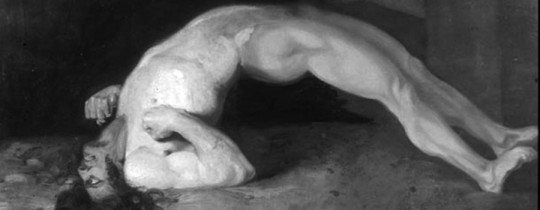Tetanus

Description
Tetanus, also known as lockjaw, is a serious infection that is caused by bacteria. It mainly affects the nervous system and can cause muscle contractions, most often in the muscles of the neck and jaw. This can make breathing extremely difficult. In some cases, it can even cause death.
The tetanus vaccine has made cases of tetanus in the United States and the rest of the developed world rare in the past decades. According to the Centers for Disease Control and Prevention (CDC), the United States has seen an average of 29 reported cases of tetanus per year between 1996 and 2009. However, it is estimated by the World Health Organization (WHO) that approximately one million cases of tetanus occur in developing countries around the world each year.
Symptoms
Tetanus is contracted when bacteria enters your body, usually through a break in the skin such as a wound. After this occurs, it can take days or weeks before any symptoms appear. On average, symptoms appear within seven or eight days. These symptoms usually include jaw muscle spasms or stiffness, the sensation of stiffness in the neck area, trouble swallowing, abdominal stiffness, and seizure or full-body spasms. The latter are usually triggered by something in the environment, such as a touch, a change in lighting, a noise, or a change in temperature. Some people report other symptoms, including an increased heart rate, uncontrollable defecation or urination, drooling, high blood pressure, irritability, fever, and perspiration.
Causes
As mentioned, tetanus is caused by a type of bacteria, called Clostridium tetani. Unlike many other major diseases, these bacteria are not spread by humans. They are found in the outside environment, usually in soil, animal feces, or dust particles. They enter the human body through wounds. For instance, someone could contract tetanus after stepping on a rusty nail outside. Once the bacteria enter the body, they produce a toxin called tetanospasmin. This toxin immediately impacts the neurons that control your body’s motor functions, impairing your ability to control your muscles and movements. The resulting symptom is muscle stiffness and contractions.
Tetanus is more likely to develop if you haven’t been immunized against it or if you haven’t received a regular tetanus booster shot. When a wound is penetrative and deep, the bacteria is more likely to enter the wound and infect the body. Swelling around the site of the wound can be a sign that tetanus might develop.
Prevention
Tetanus is entirely preventable if you keep up to date with your vaccines. Currently, many cases of tetanus occur in people who were never immunized against the disease. The rest of the cases in the United States occur in those who have not gotten their tetanus booster shot, which is required every ten years to ensure protection.
The tetanus vaccine is usually administered to children, in combination with protection against acellular pertussis and diphtheria. It its abbreviated form, it is called the DTaP vaccine and it includes five total doses, given at different ages from 2 months until approximately 6 years. After that, a booster is required approximately every ten years. People who are traveling should always ensure that their vaccination record is up-to-date.
Treatment
Tetanus currently has no cure. Treatment is focused on minimizing the impact of symptoms through medication, support, and first aid treatment. First and foremost, it is imperative that the site where the tetanus entered the body be kept clean. Although you may not be aware of whether or not you have contracted tetanus at the time of the injury, you should take precautions to make sure the wound is clean in order to lessen the likelihood that tetanus will develop. Remove any objects that may be lodged in the wound, clean it, and ensure that dead tissue isn’t blocking the wound.
When someone is diagnosed with tetanus, they usually receive a combination of drugs. These include antitoxins, which have the effect of neutralizing the tetanospasmin. This is only effective for toxins that haven’t attacked nerve tissues. Antibiotics are usually given to fight harmful bacteria. Sedative drugs can also be prescribed to control muscle spasms and seizures.
